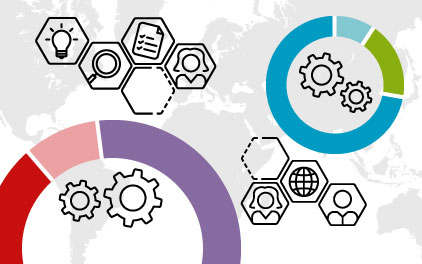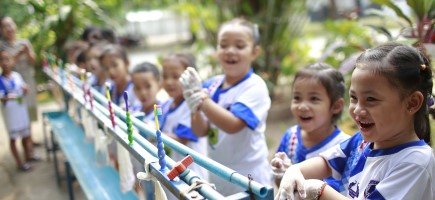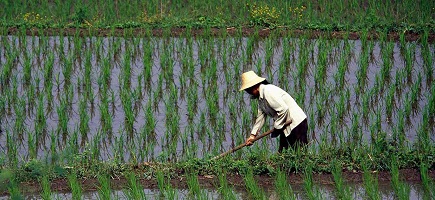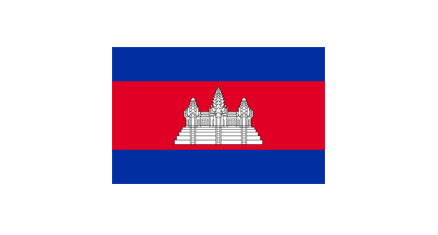
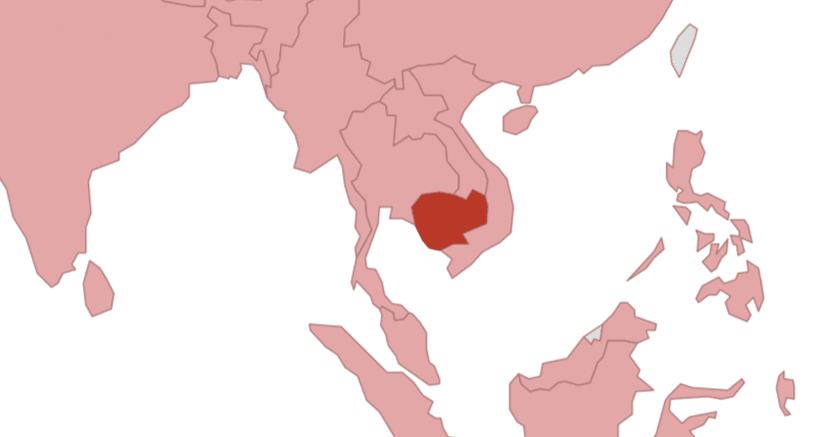
- RURAL DEVELOPMENT
- SUSTAINABLE INFRASTRUCTURE
- SECURITY, RECONSTRUCTION AND PEACE
- SOCIAL DEVELOPMENT
- GOVERNANCE AND DEMOCRACY
- ECONOMIC DEVELOPMENT AND EMPLOYMENT
Cambodia
GIZ local staff
National employees: 184
International employees: 43
Development workers: 14
Integrated experts: 11
(as at: 31.12.2023)
The Deutsche Gesellschaft für Internationale Zusammenarbeit (GIZ) GmbH has been working in Cambodia since 1994. It opened an office in the capital Phnom Penh in 2001.
Despite making significant progress in recent years, Cambodia still faces economic, social and climate-related challenges.
Cambodia is currently classified as a least developed country (LDC) but may be able to shed this status by 2027. However, it would then also lose duty-free access to important export markets such as the European Union. The government is therefore increasing its efforts to develop new business sectors alongside the existing key sectors of textiles and clothing, construction, tourism and agriculture.
Although Cambodia has achieved a huge reduction in poverty, around 500,000 households remain close to the poverty line. This leaves them vulnerable, for example when confronted with disease, loss of income, economic crises or extreme weather events.
Cambodia is one of the countries most severely affected by climate change. Agriculture and the rural population are particularly exposed. Rising temperatures, shifting precipitation patterns and more frequent, more intense extreme weather events are increasingly affecting yields, income and health. At the same time, the production of food is itself contributing directly to climate change.
The disposal of waste is another driver of climate change and pollution. Waste is frequently burnt outdoors, releasing gases that are harmful to health. It is often disposed of on the streets or in local watercourses, so that plastic ends up in rivers and oceans.
In Cambodia, GIZ primarily works on behalf of the German Federal Ministry for Economic Cooperation and Development (BMZ) and cofinancing partners. It has three priority areas:
1) Sustainable economic development
2) Health and social protection
3) Just transition
GIZ is helping to make the Cambodian economy more competitive. It supports companies in improving their productivity and efficiency and in complying with international quality standards and certification requirements. The goal is to enable the companies to participate in local, regional and international markets. In particular, GIZ is supporting the textile and clothing industry in fulfilling international sustainability requirements while remaining internationally competitive.
GIZ is involved in improving the quality of the social protection and healthcare system and making it more resilient and inclusive. It also supports efforts to improve the food situation, especially for women of childbearing age and children under two.
GIZ promotes climate-resilient agricultural systems that increase income and local value creation. It also helps to ensure that the waste management sector collects recyclable materials separately and recycles them profitably.
In addition, it supports the decentralisation and improvement of citizen services and promotes sustainable peace and reconciliation.
